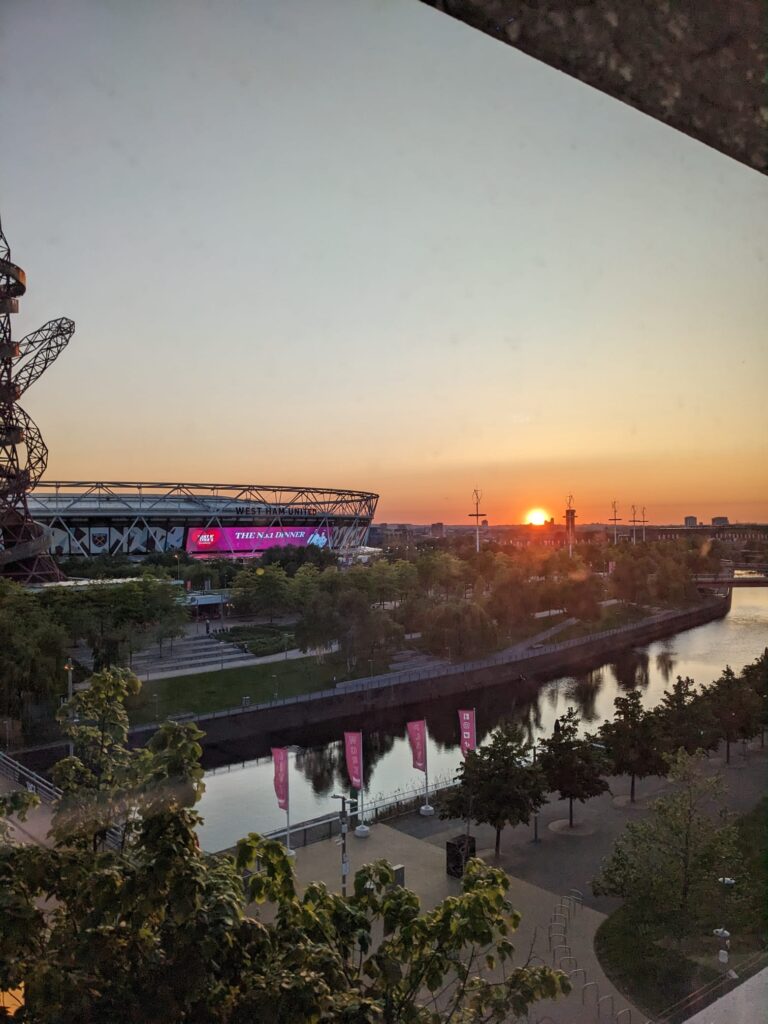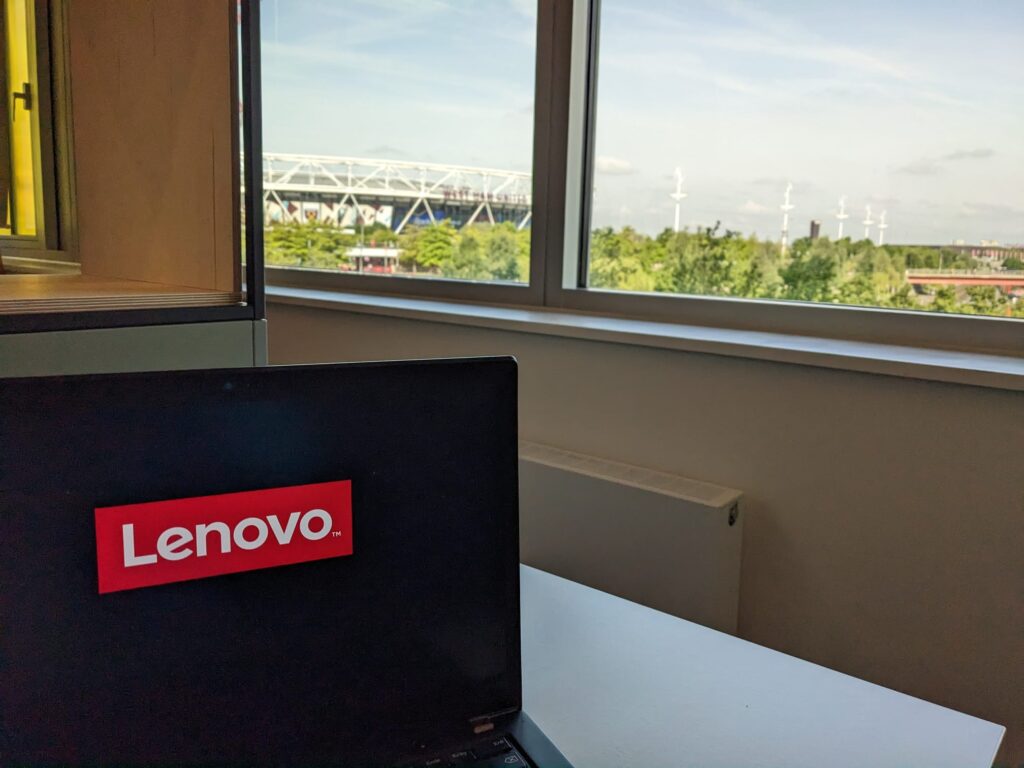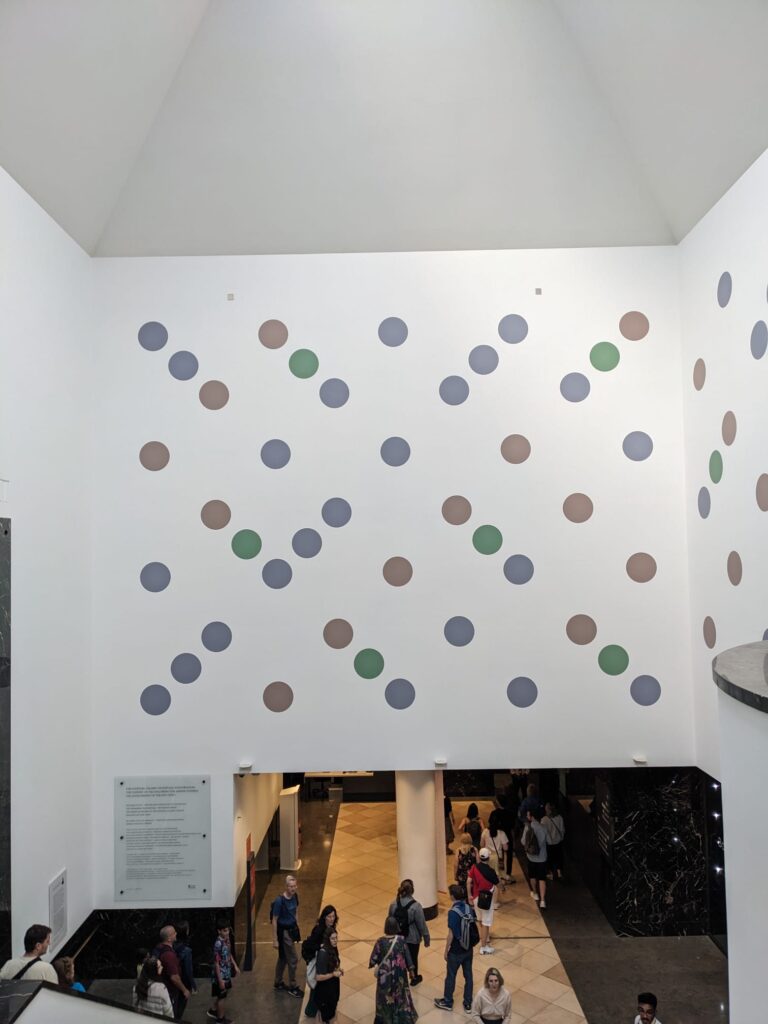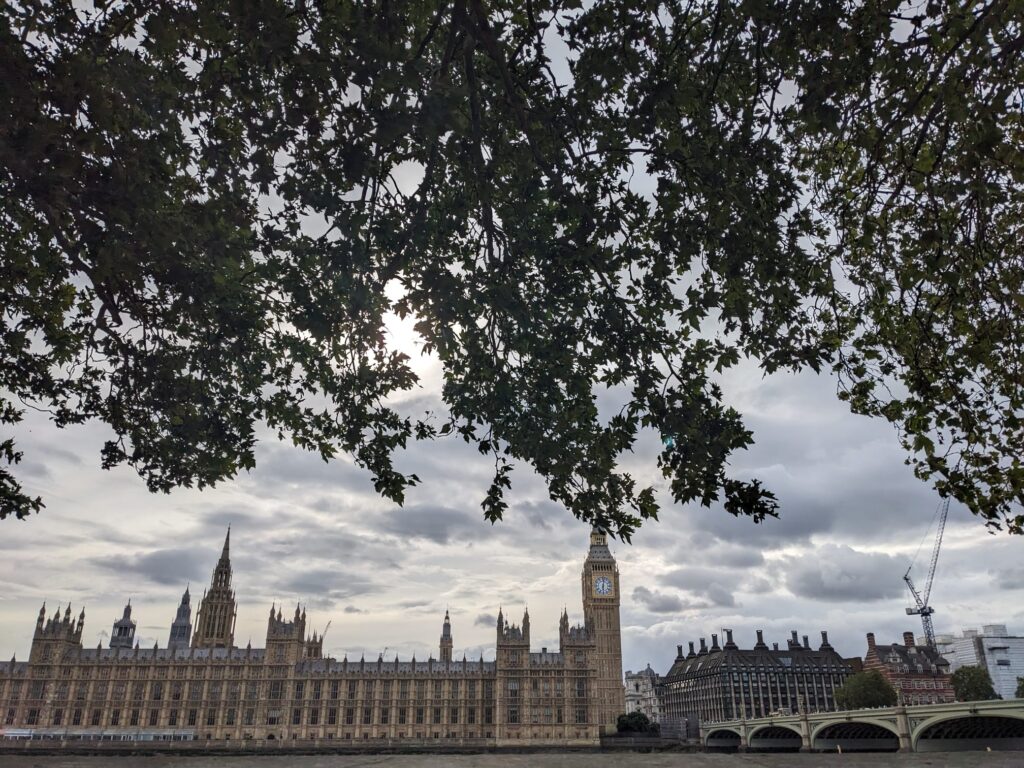Going abroad for an extended period has been a dream for me since high school. However, doing a research stay as someone with a disability is uncommon to this day still. Hence, planning and acquiring funding for my stay abroad from May to July 2023 was an emotional rollercoaster ride and took multiple months of effort.
Able-bodied PhD students only have to factor in their research interest in their choice of location. For me, accessibility of the campus and the country as a whole is also a crucial factor.
Luckily, with the Global Disability Innovation Hub based at the University College London, I won the jackpot in both research interest and accessibility, where I, in the end, could even stay in an accessible student dorm on campus instead of an accessible apartment hotel (which was the only other accessible, but expensive solution).

The GDI Hub is an exciting place where an academic research centre and a community interest company collaborate together to research disability innovations and assistive technology to empower people with disabilities.
In the group of Prof. Catherine Holloway, I found my “research home away from home”. It was a great experience to be one accessibility researcher among many in a mixed-ability group.
I started working on my Access Stories project during my research stay. In this project, I want to explore the design space for visualizing access information to aid planning and awareness creation. As a starting point, I interviewed 17 people with mobility disabilities about their access needs and access experiences while planning and traveling to find out which information to visualize in what way. This project helped me shape my PhD topic further, where I want to investigate ways and technologies to visualize the lived experiences of people with disabilities in an accessible manner.

Further, as I love to collaborate, I was involved in other projects of Prof. Holloway’s group, including a literature review that was published in the ACM Conference on Human-Computer Interaction 2024 and received an Honourable Mention Award.
Aside from project-related work, I also did a lot of networking: I went to the City University of London, for an appointment with Jason Dykes, who gave me precious research and life advice. Further, I visited their HCID Day for inspiring talks on AI and Designing Better. Much to my delight, as I love art in all its forms, I was invited by the National Gallery as an accessibility researcher to participate in a focus group for designing their new accessible learning space. Finally, I went to the disability expo to recruit participants for my user studies.

Art by Bridget Riley in the National Gallery that reminded me of scatterplots.
Beyond my research experiences, I was very impressed by London’s disability-aware culture, even though the city’s accessibility is not perfect either. In London, I never felt the need to apologize for my access needs, which was a liberating experience. The wheelchair access to bars, restaurants, and even 200-year-old pubs was better than in Stuttgart. Further, boarding the tubes and buses was less hassle than my public transport experiences in Germany. This made after-work experiences more effortless, and I was a frequent visitor to theatres and musicals, as I am an English literature enthusiast and a hopeless Harry Potter nerd.

In a report of a research stay in London, a picture of Big Ben is mandatory 😉
All in all, I feel that going abroad as an disabled researcher was crucial for my academic career and personal development. It is great to be provided with such an opportunity within the graduate program of the SFB-TRR 161, I would do it all again, despite the organizational effort.
During the disability expo, I listened to a talk where one speaker (I unfortunately forgot their name) said: “Do not be grateful for your rights. If something is accessible, this is not something to be grateful for. That is how it ought to be. It is your right.” While organizing my stay, I realized that we have to work on further decreasing our structural barriers in academic life. It is our right to have equal opportunities in research, in which international exchange plays an important role. Research stays with a disability should not be a novelty, but common. In my case, thinking outside the box and having funding for “worst-case scenarios” made this possible. Most of all, the support of all involved, especially those in faculty and institute administration, who put in extra hours regardless of their already busy schedules, helped me to navigate barriers that arose. Without their support, I would never made it to London.
I encourage all of us to step back occasionally and reflect on our processes from diverse perspectives. Thereby, we can foster diversity and reduce barriers. Helping to see different perspectives is also the core of my Ph.D. research. Accessibility is individual, and thus, there are no one-size-fits-all solutions. We have to be creative if we want to be accessible. And sometimes, disability-related funding also helps. 😉
I hope my story about going abroad as a disabled researcher inspired many other researchers with a disability to make experiences in a foreign country.

